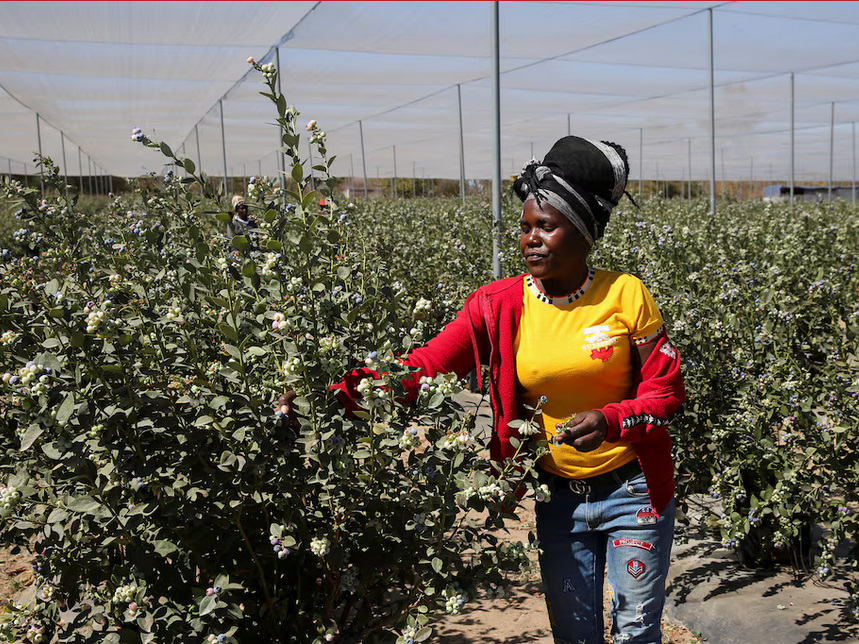Zimbabwean farmers are eager to seize the growing global demand for blueberries, yet many, like self-funded grower Willard Zireva, face significant financial challenges and limited government support. While Zimbabwe has become one of the fastest-growing blueberry producers worldwide—doubling production to 7,000 metric tons last year due to a favorable climate—farmers struggle to secure necessary funding for their operations.
Despite horticultural exports exceeding $100 million annually, a legacy of land seizures under former President Robert Mugabe has created lasting difficulties in securing financing, particularly due to banks’ hesitance to lend in an environment characterized by uncertain land tenure. This uncertainty particularly affects Black farmers like Zireva, who cultivate blueberries on a farm he purchased in the 1990s.
Currently, the blueberry farming sector is predominantly held by a few remaining local white farmers, many of whom are seeking foreign investment to grow their businesses. The situation is complicated further by Zimbabwean banks’ refusal to accept the government’s 99-year leases as collateral, stemming from a history of arbitrary land acquisitions that have made financial institutions wary of lending to farmers.
Zireva operates 12 hectares of blueberry crops at Talana farm, located 100 km (62 miles) west of Harare, but he was forced to rely on personal savings to establish his first crop after being denied a loan. He believes that if funding were available, there would be significant opportunities for growth. “If funding is available, there is a massive growth opportunity,” he stated, highlighting the need for government interventions and concessional funding to support farmers.
To cultivate a hectare of blueberries, growers need at least $100,000 to import plants, peat pots, and necessary infrastructure, such as refrigerated packaging facilities and adequate water resources. Zireva’s goal is to export 120 metric tons of blueberries to the UK and East Asia this year; however, he notes that demand far exceeds current supply. He estimates requiring $1.2 million to double his production capacity and expand his farm to 20 hectares.
The Horticultural Development Council (HDC) has indicated that the lack of long-term financing is a significant obstacle to doubling blueberry hectarage to 1,500 hectares by 2030. HDC CEO Linda Nielsen has emphasized that without adequate funding, the sector may struggle to maintain its market share, resulting in a decline in tonnage. “We really need to grow the hectarage and maintain our market share,” she noted.


